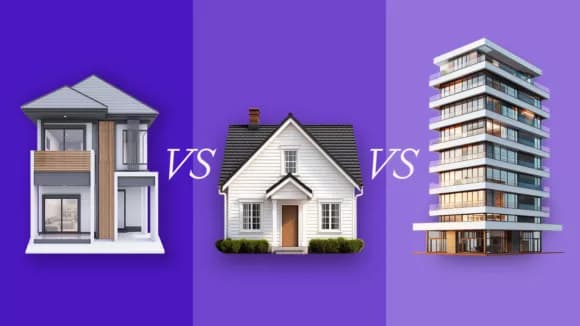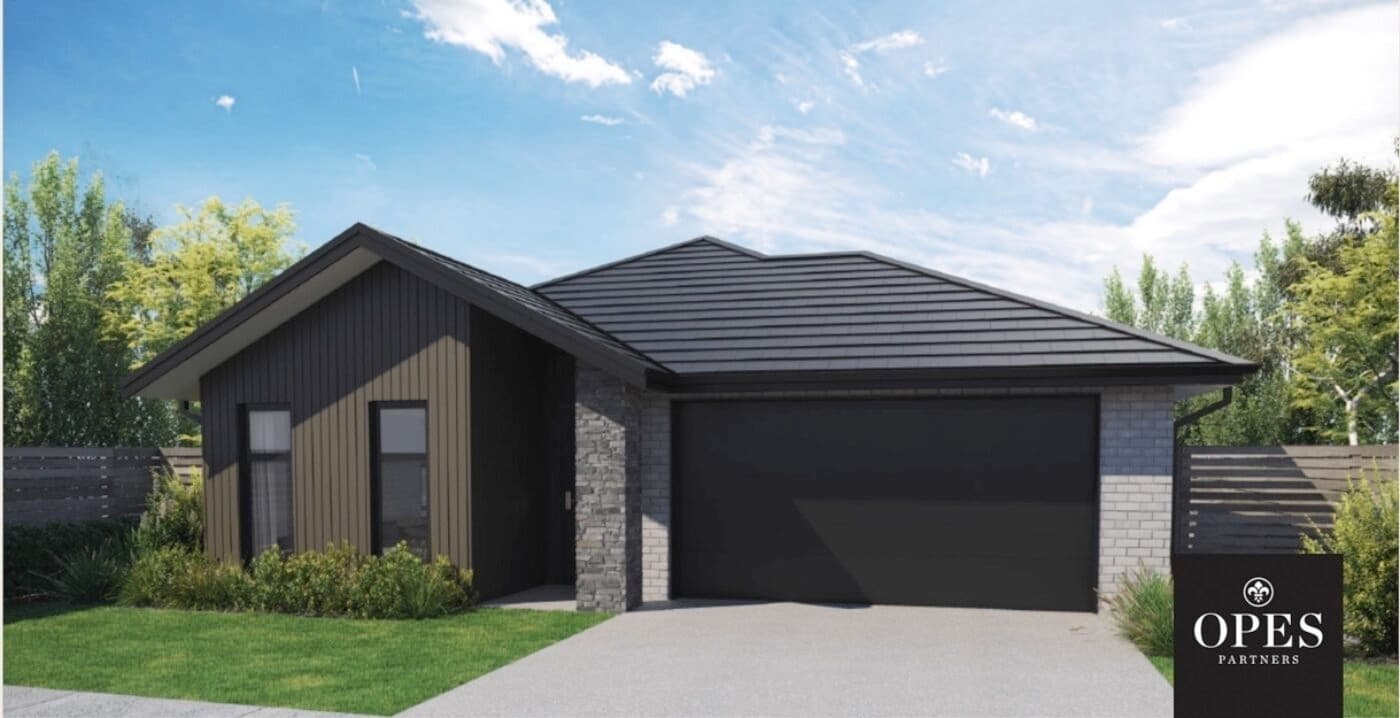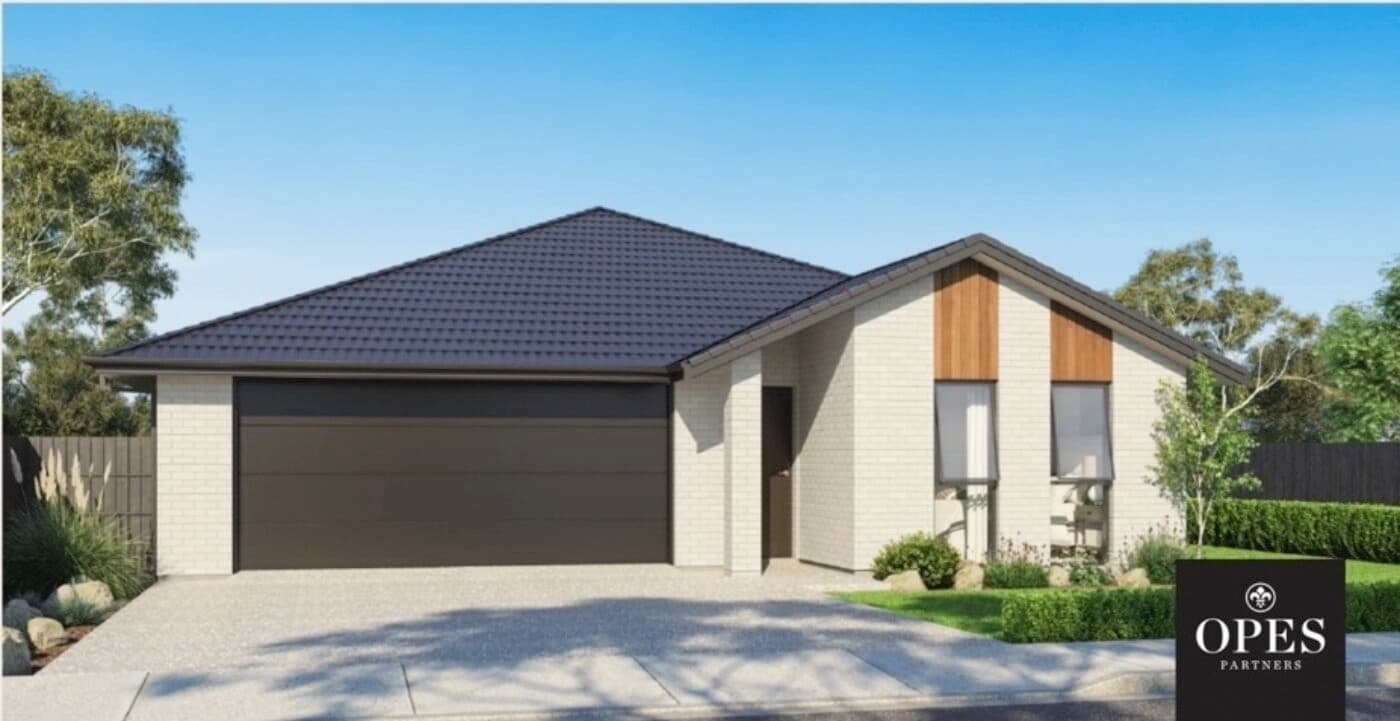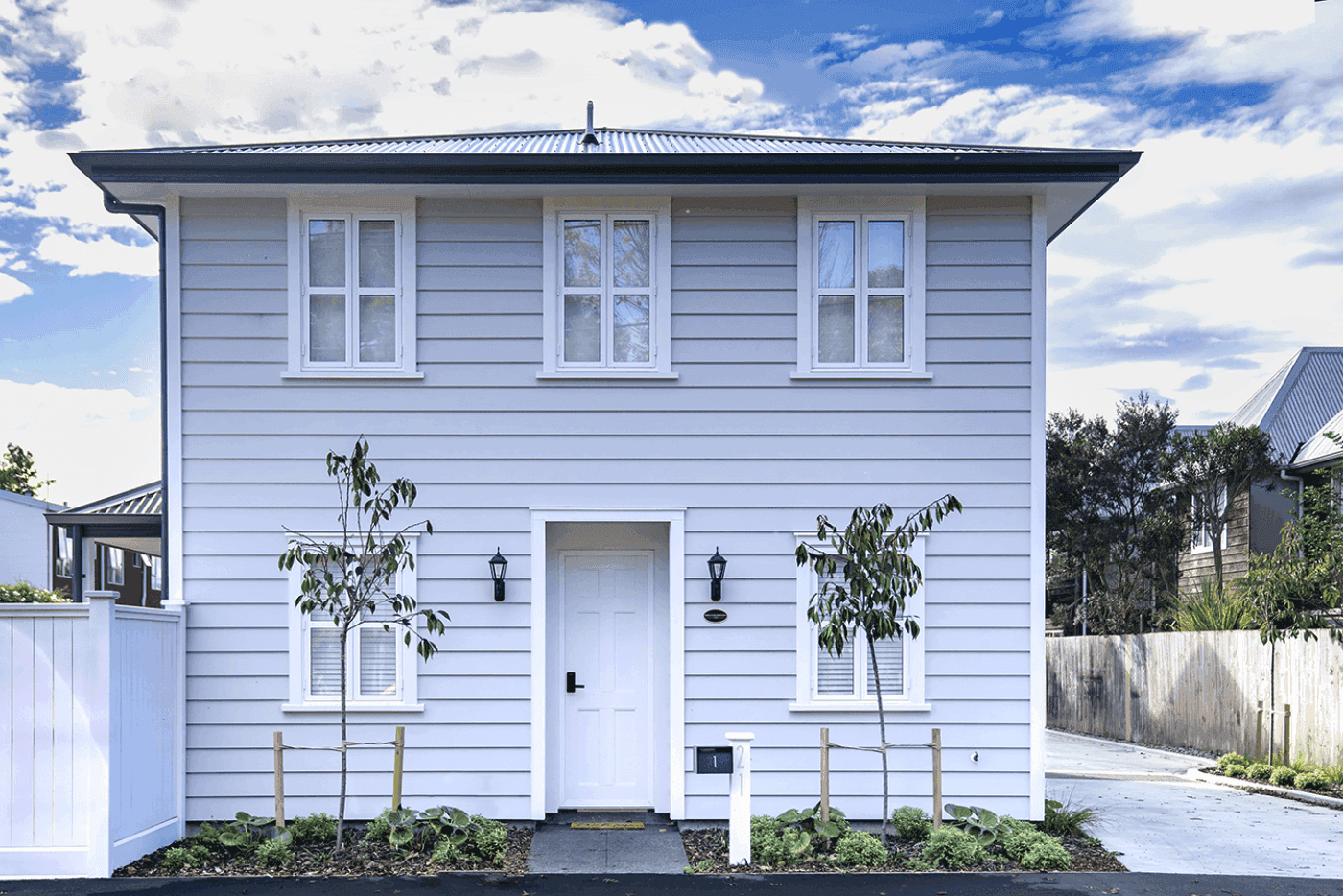
Property Types
Houses vs townhouses vs apartments - Which goes up in value faster?
Want to know what sort of properties you should invest in? See the data about which grows in value faster – houses, townhouses or apartments.
Property Types
9 min read

Author: Laine Moger
Journalist and Property Educator, holds a Bachelor of Communication (Honours) from Massey University.
Reviewed by: Ed McKnight
Resident Economist, with a GradDipEcon and over five years at Opes Partners, is a trusted contributor to NZ Property Investor, Informed Investor, Stuff, Business Desk, and OneRoof.
Property investors don’t buy as many new build standalone houses, compared to other types of new builds – like townhouses or apartments.
This is because land is expensive in the big cities like Auckland and Wellington, so it often doesn’t make financial sense for developers to build standalone houses for the open market.
But in the outskirts of Christchurch and other areas where land is cheap, you’ll find that family-sized houses are still a popular option for some investors.
But are they a good investment? Here’s our honest review.
In this article you’ll learn the pros and cons of these standalone properties, and whether this type of property is suited for your property portfolio.
New build houses are being built all over the country. But the ones that tend to be popular with investors tend to be around the outskirts of Christchurch and its satellite towns. Think places like Rolleston, Kaiapoi, and Woodend.
The relatively cheap land means investors can purchase a standalone house at a reasonable price that makes sense.
Their location – close to the city but not right in the centre – makes these properties ideal for families. The wider development and community plans reflect that.
For example, these suburban developments are often kitted out with wider roads, childcare centres, good schools, and motorways, which allow for quick commutes into the centre of town.
Typically, these new subdivisions are built on converted farmland.
Outside Canterbury, we at Opes Partners don’t tend to recommend house and land packages because the land (and therefore properties) is expensive. So standalone houses in other large centres often don’t earn enough rental return to be viable.

A 3 to 4 bedroom standalone property (with a double garage) in Canterbury is typically priced between $850,000 to $1 million. The exact cost depends on where the property is being built.
For instance, properties in Halswell – a suburb on the perimeter of Christchurch City – will be priced at the upper end of that range.
Here is an example of a 4-bed, 2 bath property in Halswell is price at $920,000.
The 158 square metre floorplan is shared between a master bedroom, 3 bedrooms, and an internal access garage. The estimated rent will fetch between $720 and $750 per week.
Comparatively, properties in satellite towns like Rolleston and Kaiapoi tend to be within the $850,000 - $925,000 range.
For example, this 4-bed, 2 bath property in Rolleston is priced at $785,000. The estimated rent is somewhere between $650 and $670 per week.
While the floor size is identical to its more expensive alternative in Halswell, it does offer over 100 square meters of extra land space.
In Faringdon, it’s just south of Rolleston’s town centre and 20 minutes to Christchurch City.

Even though standalone houses are more expensive than townhouses, there are a few reasons why some investors prefer to purchase these types of property.
Firstly, standalone properties tend to grow in value slightly faster than townhouses. For instance, on average in Auckland standalone houses tended to increase in value 0.6% faster per year compared to townhouses.
On top of this, if you buy a standalone house, you’ll have more land than if you buy a townhouse. For instance, if you buy a 4-bedroom double garage property in Rolleston, your property might have 400 metres squared of land.
Whereas, if you buy a townhouse in Christchurch, you might be in a better location, but have only 50-120 metres squared of land (depending on the development).
Even though there is little evidence that the larger amount of land will help the property grow in value faster … some investors prefer this.
Lastly, when you buy a standalone house, you own everything within the fence. That means you don’t need to belong to a Residents Association or Body Corporate. That can give you more control over your property.
Finally, as much as investors should buy on the numbers – some are just more comfortable buying standalone houses – because that is what they know.
However, townhouses still have some benefits over their standalone counterparts.
Townhouses tend to be built in better locations, since they don’t require as much land. And they also tend to be more affordable.
A standalone property in Halswell, Christchurch might cost $950,000, whereas a 2-bedroom townhouse in an inner-city suburb might cost $635,000.
At the time of writing, there is extremely high demand for standalone houses from tenants.
Opes Property Management – our property managers at Opes Partners – says brand new, 4-bed standalone properties in places like Rolleston go like hotcakes. “The rental market is crying out for more of them.”
That means that properties are often filled quickly, and that vacancy rates are low.
This is also caused by the fact that younger families tend to stay in the same house longer than a young professional couple renting a townhouse.
Compare a young family with two kids renting a standalone house, to a young single working professional renting a townhouse in the city.
The young professional is more likely be transient and stay in the property for a shorter period.
Linda reckons that on average tenants rent Christchurch City apartments for about 12-18 months. But in the suburbs, the length of a family tenancy is much longer.
A 3 to 4 bedroom standalone property (with a double garage) in Canterbury is priced around $850,000 to $1 million.
The same 4-bedroom house can be rented for anywhere between $600 to $650 a week. In Rolleston, this has shot up from $500 a week in just a few months.
Demand is being driven by a lack of stock in the area because less housing is coming to market in the past 6 months.
In Halswell, you can expect to see anything up $700 for a 4-bed 2x bathroom.
In terms of capital growth, even though the race between houses and townhouses is close, currently houses tend to grow in value slightly faster.
When running the numbers using our Return on Investment spreadsheet, typically townhouses and houses tend to achieve a similar level of return.
New build, standalone properties tend to be a good fit for investors who can afford to spend a bit more on an investment property.
Also, because the 4-bed standalone tends to attract a family as a tenant, it could be a good option for an investor who wants the security of tenure.
As we’ve said earlier, it’s reasonable to think a 4-bedroom standalone property will attract more settled tenants, as opposed to a typical transient tenant in the city centre.
If you are a seasoned investor with a lot of 2-bed or 3-bed townhouses, you might consider your next purchase in the wider context of your portfolio.
In that instance, you might look for diversification and seek to buy a standalone property in the ‘burbs.
Also, established property investors looking to add a good growth property to their portfolio would find this sort of property attractive.
On the other hand, if you are an emerging investor looking for your first property to kick start your portfolio, a standalone property might not be the starting block for you.
Perhaps it would be better to invest in a less expensive, 2-bedroom townhouse closer to the central city, in this instance.
Then, once you had a bit more equity under your belt you could set your sights on suburbia.
Also, a standalone house is likely not to be the right fit if you are investing in cities outside Christchurch. For instance, if you are dead-set on investing in Auckland or Wellington, a new build standalone house may not be the right fit at all.
All things considered, a standalone property could be a banging investment for some investors. But it is important to note that not every house is automatically a good investment.
Yes, there is a niche suburbia market in the Christchurch outskirts crying out for more family houses. But this same sort of opportunity might not work in another region, or a bigger city like Auckland or Wellington.

Ultimately it comes down to the numbers and being able to sort the good investments from the bad.
That’s why, here at Opes, we work with 58 developers from around NZ to find the right properties for Kiwi investors. And then once we find them, we rigorously run the numbers to offer good investment properties to our investors.
This means considering not just whether it is 4-bed standalone with a double garage, but also an assessment of the location, the neighbourhood, the price, the rental capacity and the developer.
To find out more about how we find quality investment properties for investors, click here to read about our property investment programme.
Journalist and Property Educator, holds a Bachelor of Communication (Honours) from Massey University.
Laine Moger, a seasoned Journalist and Property Educator holds a Bachelor of Communications (Honours) from Massey University and a Diploma of Journalism from the London School of Journalism. She has been an integral part of the Opes team for four years, crafting content for our website, newsletter, and external columns, as well as contributing to Informed Investor and NZ Property Investor.
This article is for your general information. It’s not financial advice. See here for details about our Financial Advice Provider Disclosure. So Opes isn’t telling you what to do with your own money.
We’ve made every effort to make sure the information is accurate. But we occasionally get the odd fact wrong. Make sure you do your own research or talk to a financial adviser before making any investment decisions.
You might like to use us or another financial adviser